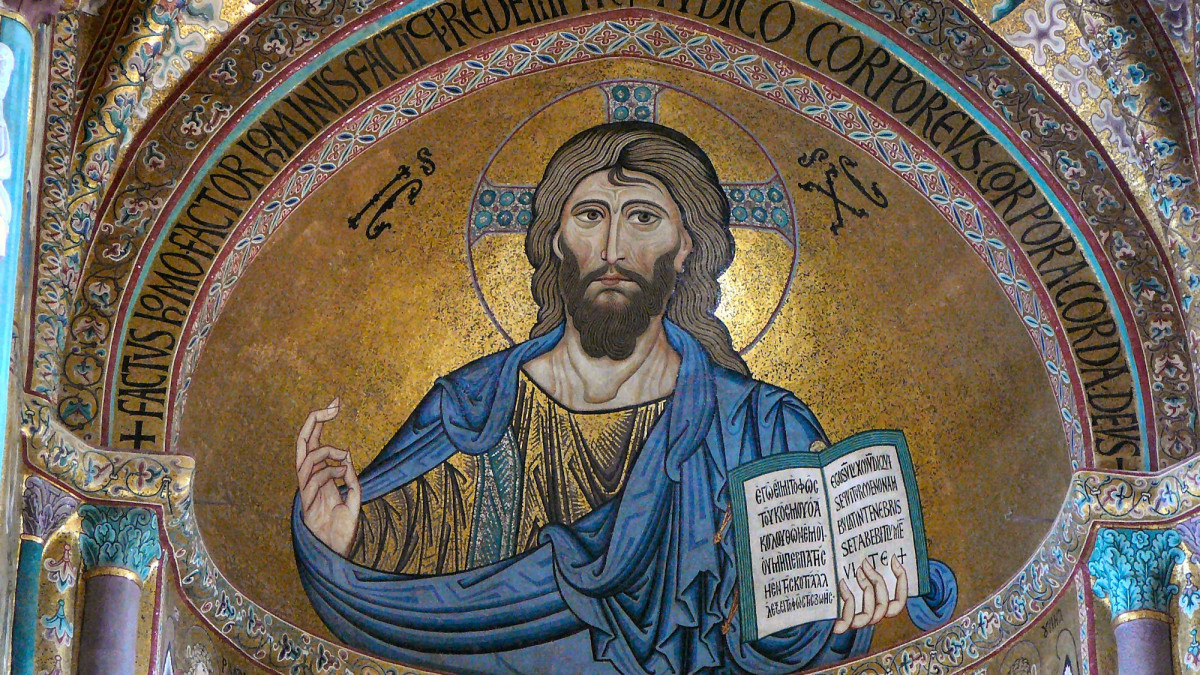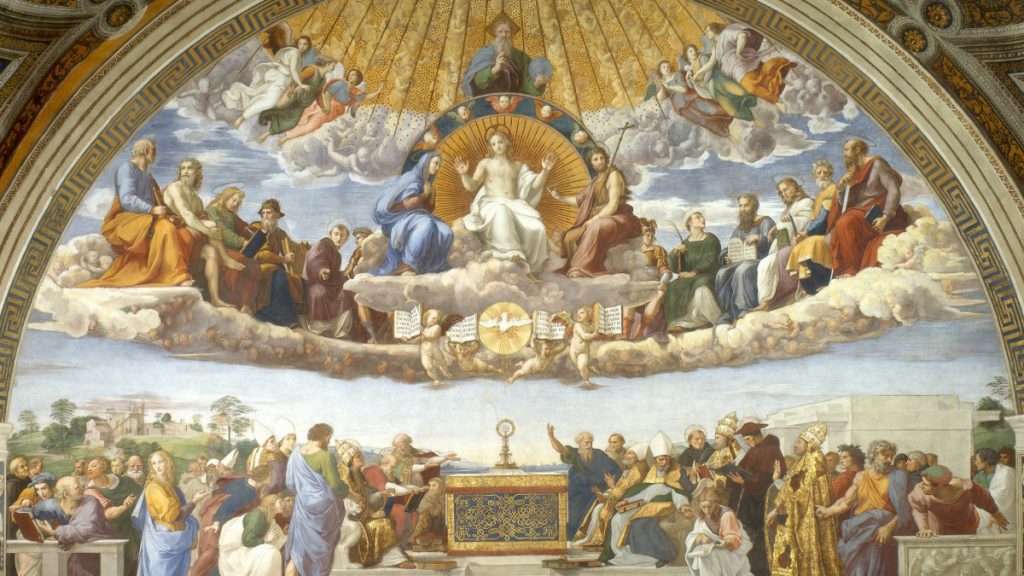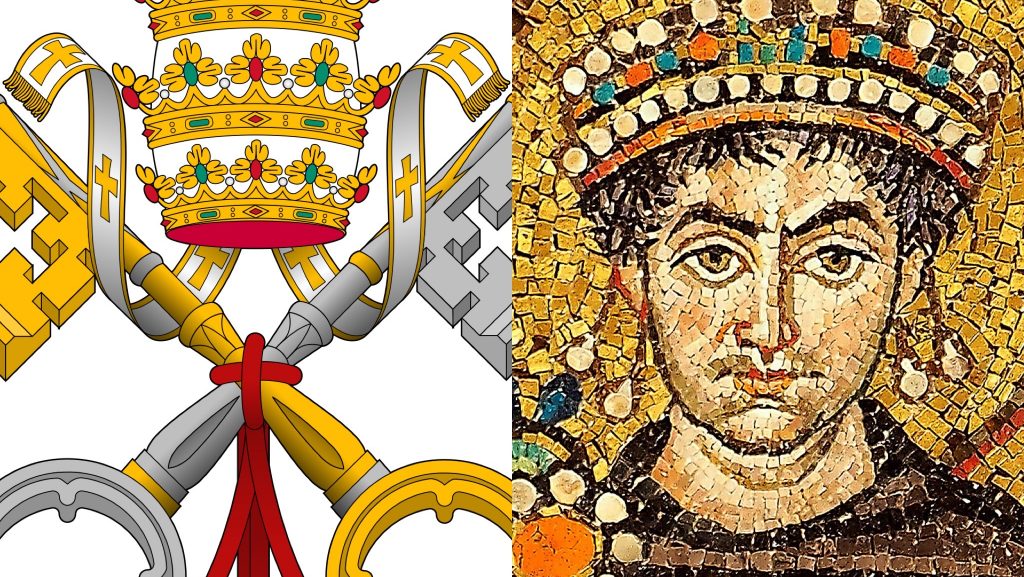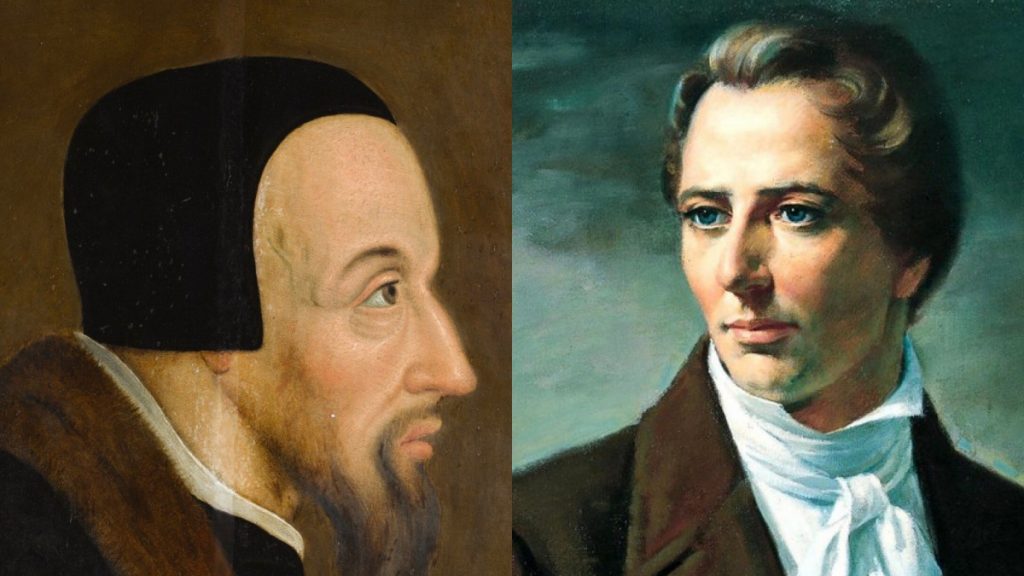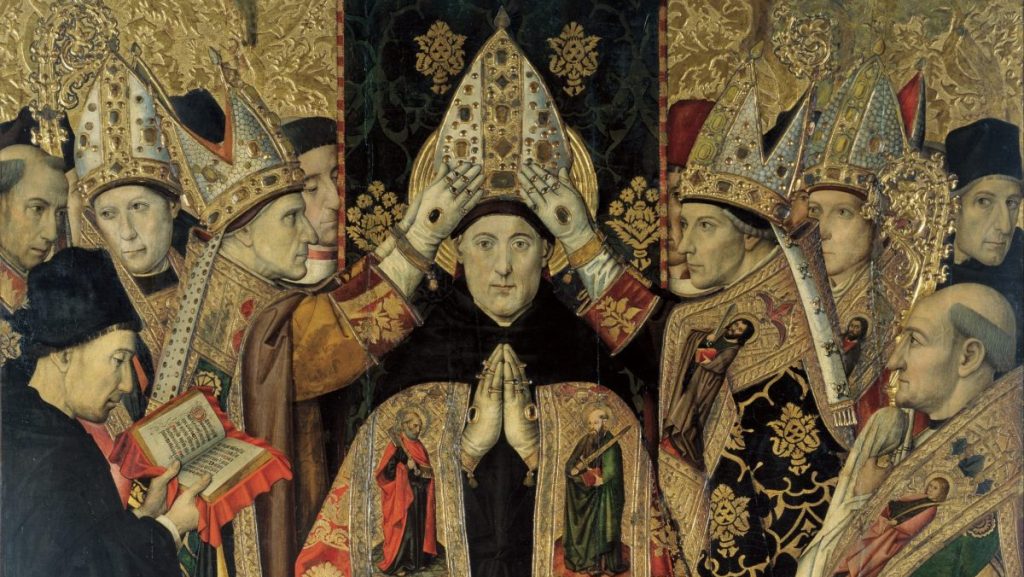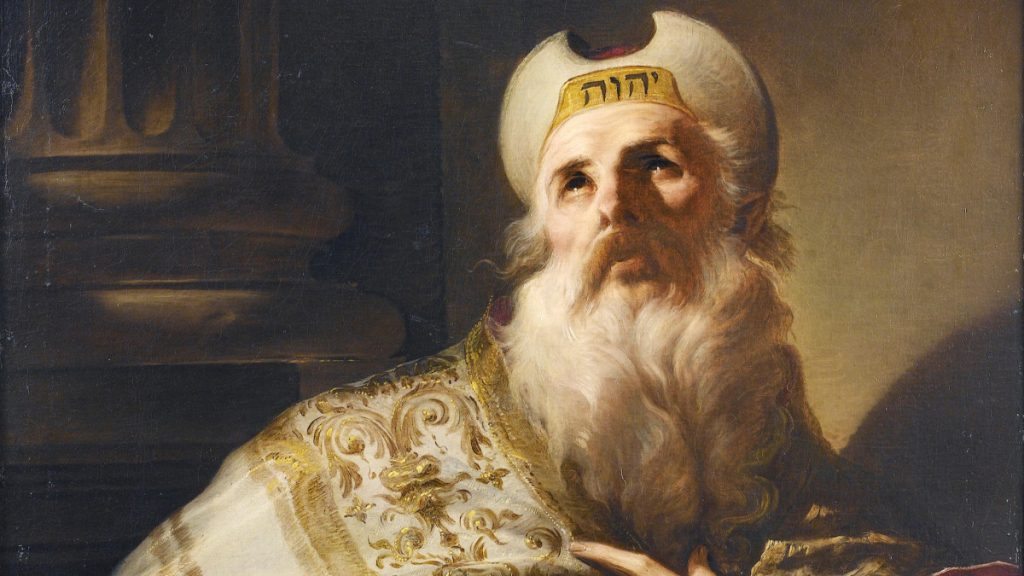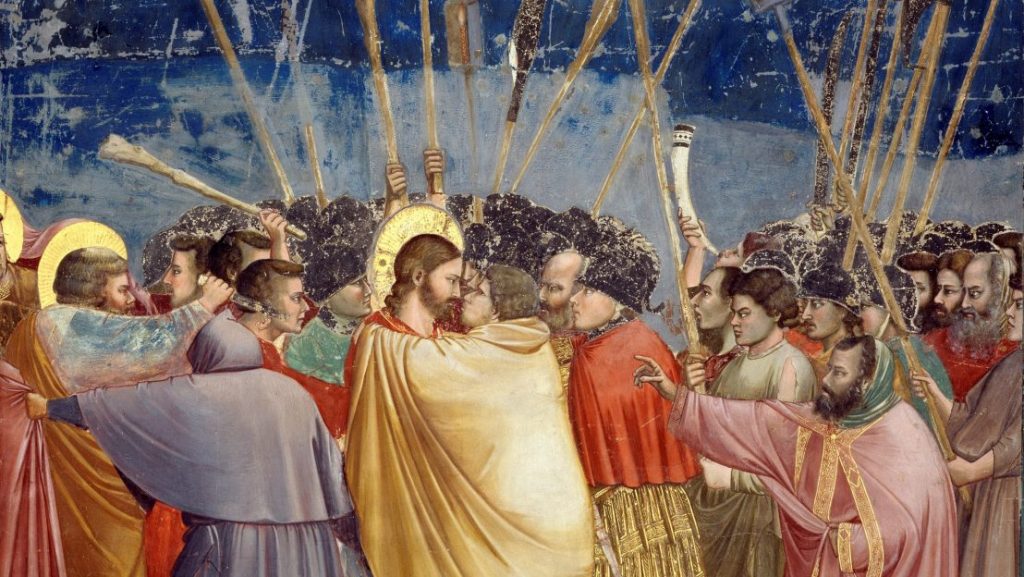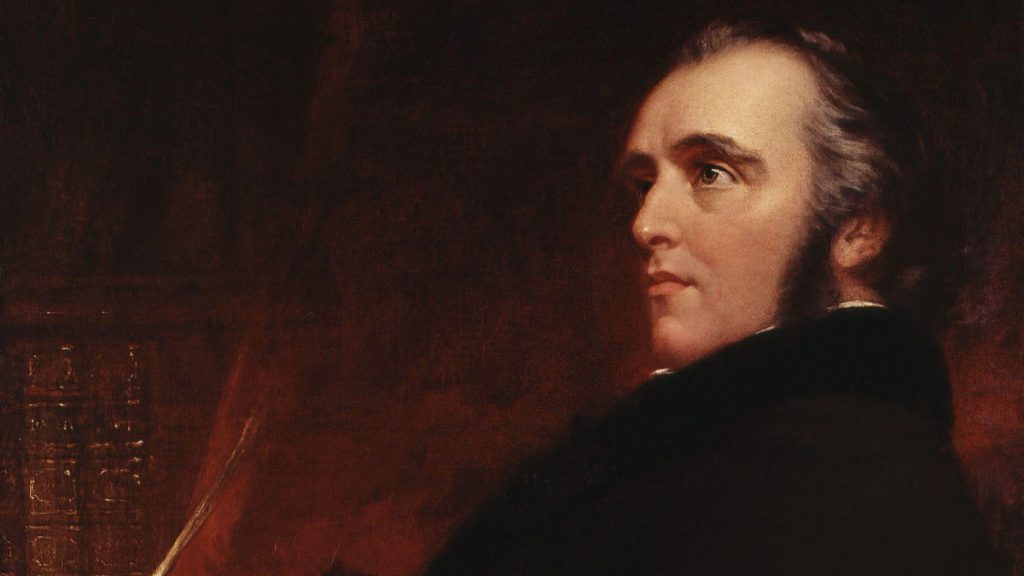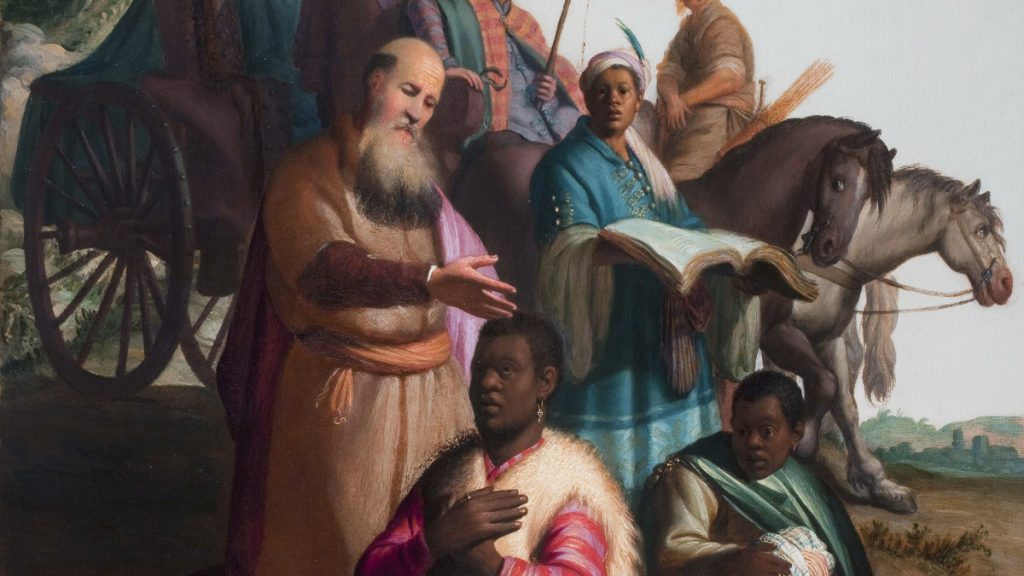Growing up protestant, I took for granted the idea that there could be many Christian churches who, despite disagreeing on many fundamental issues, could nonetheless be considered part of one “church.” In other words, we could have different doctrines (Faith), independent congregations and denominations (government), and different forms of worship (sacraments), but we nonetheless could be “one church.”
I never understood this. Reading Scripture certainly increased the confusion. After all, Christ’s prayer for unity is crystal clear (John 17). And the Apostles everywhere commanded unity of Faith (see, for example, Eph. 4:4-6 and Phil. 2:2), assumed common worship (see, for example, 1 Cor. 11:17-34), and exercised, with the first generation of elders they had appointed, universal government over all the churches (see Acts 15, and #12 | Why Acts 15 Led Me to the Catholic Church).
In other words, long before I had read a single Catholic, and while still considering the Catholic Church probably apostate, if not quasi-pagan, I saw that the idea of “church” everywhere around me was simply not biblical. This was despite the fact that many protestants call their congregations “Bible churches,” and claim they are following Scripture.
But when I began reading the Church Fathers, I saw something very different. Beginning in the earliest days of Christianity, they referred to the Church in a particular way: they called it the “Catholic Church.” The Greek origins of the word “Catholic” are derived from kata (“according to”) holos (“the whole”), or simply “universal.” This term was everywhere, beginning with St. Ignatius of Antioch around AD 107, who was discipled by the Apostle John, and fed to beasts as a martyr in the Roman Coliseum.
St. Ignatius uses the term in several letters to different local churches without any detailed exposition of it, which implies it was already in use up to that point, and they knew what he was referring to. In every century afterward, in East and West, in Africa, the Middle East, and Europe, you everywhere see the same term applied to the one true Church. The earliest Councils spoke of the “Catholic Church,” and of its membership. It is everywhere assumed and defended that to be a Christian meant one needed to be part of this one and only Catholic Church, which shared a common Faith, government, and sacraments.
I was stunned by what I was reading. It could not have been more different than the various protestant ideas to which I had been exposed throughout my life—which was all the more disconcerting, given our own historical mythos of having recovered “the gospel” of the ancient Church, which had, we claimed, been distorted, perverted, and corrupted by the Catholic Church. But when I actually read the Fathers, they were claiming the exact opposite: the true Faith is only found in the Catholic Church, to which all Christians must belong!
This ultimately made biblical and logical sense. If there is one true Faith, then that Faith must be the same everywhere, for everyone. Truth is necessarily exclusive. And if that Faith is imparted to those who are part of the Body of Christ, and the Body of Christ is the Church, this necessarily implies that the true Faith exists in only one Church, not among all who merely claim to be “churches” but digress from this Faith.
I recognized this even as a non-Catholic reader of the Fathers. Apparently, it was obvious to many other scholars as well, including the protestant (Anglican) scholar J.N.D. Kelly, who in his classic work, Early Christian Doctrines, addressed the use of the term “Catholic” by the Fathers1:
As regards ‘Catholic,’ its original meaning was ‘universal’ or ‘general’…As applied to the Church, its primary significance was to underline its universality as opposed to the local character of the individual congregations. Very quickly, however, in the latter half of the second century at latest, we find it conveying the suggestion that the Catholic is the true Church as distinct from the heretical congregations.
In all this there is implied a distinctive, if far from consciously formulated, ecclesiology. If the Church is one, it is so in virtue of the divine life pulsing through it. Called into existence by God, it is no more a mere man-made agglomerate than was God’s ancient people Israel. It is in fact the body of Christ, forming a spiritual unity with Him as close as His unity with the Father, so that Christians can be called His ’members.’ As the incarnation is the union of seen with unseen, flesh with spirit, so Ignatius teaches that the Church is at once flesh and Spirit, its unity being the union of both. And it is a holy community within which the divine Spirit lives and operates. Among the multiplicity of local bodies making up this community, he seems to suggest that the Roman church occupies a special position; he speaks of the church ‘which has the primacy (προκάάθηται) in the place of the region of the Romans.’…
What these early fathers were envisaging was almost always the empirical, visible society; they had little or no inkling of the distinction which was later to become important between a visible and an invisible Church.
So while protestants, despite their myriad of disagreements, often agree on defining their identity as non-Catholic, I found everywhere in the ancient Church that one of the marks of believing the true Faith was actually being a member of the Catholic Church, and assenting to Her teachings. Even more interesting is the fact that the phenomena of people separating from the Church but nonetheless claiming to be true Christians was nothing new. The Fathers address it everywhere, and condemn it. And among all those who did so—heretics—even they did not resemble modern protestant sects.
In short, while I had assumed my whole life that Christians could differ in Faith, in government, and in sacraments (though I could not harmonize this with Scripture), I found the ancient Church universally believed the opposite, and everywhere asserted that the Catholic Church was the one true Church established by Christ.
Here is a small but illustrative collection of quotes from the Church Fathers on this topic. You can find many more at the Becoming Catholic Quote Archive: Baptismal Regeneration.
Evidence from the Church Fathers
St. Ignatius of Antioch (died c. 107) | EAST
St. Ignatius of Antioch, Letter to the Smyrnaeans (§8) (c. 107)
Let no man do anything connected with the Church without the bishop. Let that be deemed a proper Eucharist, which is [administered] either by the bishop, or by one to whom he has entrusted it. Wherever the bishop shall appear, there let the multitude [of the people] also be; even as, wherever Jesus Christ is, there is the Catholic Church.
St. Polycarp (69-155) | EAST
Martyrdom of Polycarp (§19) (c. 156)
This, then, is the account of the blessed Polycarp, who, being the twelfth that was martyred in Smyrna (reckoning those also of Philadelphia), yet occupies a place of his own in the memory of all men, insomuch that he is everywhere spoken of by the heathen themselves. He was not merely an illustrious teacher, but also a pre-eminent martyr, whose martyrdom all desire to imitate, as having been altogether consistent with the Gospel of Christ. For, having through patience overcome the unjust governor, and thus acquired the crown of immortality, he now, with the apostles and all the righteous [in heaven], rejoicingly glorifies God, even the Father, and blesses our Lord Jesus Christ, the Savior of our souls, the Governor of our bodies, and the Shepherd of the Catholic Church throughout the world.
Tertullian (c. 155-c. 220) | WEST
Tertullian, Prescription Against Heretics (Ch. 30) (c. 200)
Where was Marcion [the heretic] then, that shipmaster of Pontus, the zealous student of Stoicism? Where was Valentinus then, the disciple of Platonism? For it is evident that those men lived not so long ago—in the reign of Antoninus for the most part—and that they at first were believers in the doctrine of the Catholic Church, in the church of Rome under the episcopate of the blessed Eleutherus, until on account of their ever-restless curiosity, with which they even infected the brethren, they were more than once expelled…
St. Cyprian of Carthage (c. 210-258) | WEST
St. Cyprian of Carthage, Letter 68: To Florentius Pupianus, on Calumniators (§8) (254)
[T]hey alone have remained without, who even, if they had been within, would have had to be cast out. Nor does the Lord, the protector of His people, and their guardian, suffer the wheat to be snatched from His floor; but the chaff alone can be separated from the Church, since also the apostle says, “For what if some of them have departed from the faith? Shall their unbelief make the faith of God of none effect? God forbid; for God is true, but every man a liar” (Rom. 3:3-4). And the Lord also in the Gospel, when disciples forsook Him as He spoke, turning to the twelve, said, “‘Will you also go away?’ then Peter answered Him, ‘Lord, to whom shall we go? You have the word of eternal life; and we believe, and are sure, that You are the Son of the living God’” (John 6:67-69). Peter speaks there, on whom the Church was to be built, teaching and showing in the name of the Church, that although a rebellious and arrogant multitude of those who will not hear and obey may depart, yet the Church does not depart from Christ; and they are the Church who are a people united to the priest, and the flock which adheres to its pastor. Whence you ought to know that the bishop is in the Church, and the Church in the bishop; and if anyone be not with the bishop, that he is not in the Church, and that those flatter themselves in vain who creep in, not having peace with God’s priests, and think that they communicate secretly with some; while the Church, which is Catholic and one, is not cut nor divided, but is indeed connected and bound together by the cement of priests who cohere with one another.
St. Cyril of Jerusalem (c. 313-386) (EAST)
St. Cyril of Jerusalem, Catechetical Lecture No. 18 (§§23, 26) (c. 350)
(§23) It [the Church] is called Catholic then because it extends over all the world, from one end of the earth to the other; and because it teaches universally and completely one and all the doctrines which ought to come to men’s knowledge, concerning things both visible and invisible, heavenly and earthly; and because it brings into subjection to godliness the whole race of mankind, governors and governed, learned and unlearned; and because it universally treats and heals the whole class of sins, which are committed by soul or body, and possesses in itself every form of virtue which is named, both in deeds and words, and in every kind of spiritual gifts.
(§25) Of old the Psalmist sang, “Bless ye God in the congregations, even the Lord, (ye that are) from the fountains of Israel.” But after the Jews for the plots which they made against the Savior were cast away from His grace, the Savior built out of the Gentiles a second Holy Church, the Church of us Christians, concerning which he said to Peter, “And upon this rock I will build My Church, and the gates of hell shall not prevail against it” (Matt. 16:18). And David prophesying of both these, said plainly of the first which was rejected, “I have hated the Congregation of evil doers”; but of the second which is built up he says in the same Psalm, “Lord, I have loved the beauty of Your house”; and immediately afterwards, “In the Congregations will I bless you, O Lord.” For now that the one Church in Judea is cast off, the Churches of Christ are increased over all the world; and of them it is said in the Psalms, “Sing unto the Lord a new song, His praise in the Congregation of Saints.” Agreeably to which the prophet also said to the Jews, “I have no pleasure in you, says the Lord Almighty” (Mal. 1:10); and immediately afterwards, “For from the rising of the sun even unto the going down of the same, My name is glorified among the Gentiles” (Mal. 1:11). Concerning this Holy Catholic Church Paul writes to Timothy, “That you may know how you ought to behave yourself in the House of God, which is the Church of the Living God, the pillar and ground of the truth” (1 Tim. 3:15).
St. Augustine (354-430) (WEST)
St. Augustine, Of True Religion (§12) (c. 390)2
[W]e must hold fast the Christian religion and the communion of the Church which is Catholic, and is called Catholic not only by its own members but also by all its enemies. Whether they will or no, heretics and schismatics use no other name for it than the name of Catholic, when they speak of it not among themselves but with outsiders. They cannot make themselves understood unless they designate it by this name which is in universal use…
St. Augustine, Faith and the Creed (Ch. 10, §21) (393)
[W]e believe also in The Holy Church, [intending thereby] assuredly the Catholic. For both heretics and schismatics style their congregations churches. But heretics, in holding false opinions regarding God, do injury to the faith itself; while schismatics, on the other hand, in wicked separations break off from brotherly charity, although they may believe just what we believe. Wherefore neither do the heretics belong to the Catholic Church, which loves God; nor do the schismatics form a part of the same, inasmuch as it loves the neighbor, and consequently readily forgives the neighbor’s sins, because it prays that forgiveness may be extended to itself by Him who has reconciled us to Himself, doing away with all past things, and calling us to a new life.
St. Augustine, Against the Fundamental Epistle of Manichaeus (§§5-6) (397)
(§5) For in the Catholic Church, not to speak of the purest wisdom, the knowledge of which a few spiritual men attain in this life, so as to know it, in the scantiest measure, indeed, because they are but men, still without any uncertainty (since the rest of the multitude derived their entire security not from acuteness of intellect, but from simplicity of faith)—not to speak of this wisdom, which you do not believe to be in the Catholic Church, there are many other things that most justly keep me in her bosom. The consent of peoples and nations keeps me in the Church; so does her authority, inaugurated by miracles, nourished by hope, enlarged by love, established by age. The succession of priests keeps me, beginning from the very seat of the Apostle Peter, to whom the Lord, after his Resurrection, gave it in charge to feed his sheep, down to the present episcopate. And so, lastly, does the name itself of Catholic, which, not without reason, amid so many heresies, the Church has thus retained; so that, though all heretics wish to be called Catholics, yet when a stranger asks where the Catholic Church meets, no heretic will venture to point to his own chapel or house. Such then in number and importance are the previous ties belonging to the Christian name that keep a believer in the Catholic Church, as it is right they should, though from the slowness of our understanding, or the small attainment of our life, the truth may not yet fully disclose itself. But with you, where there are none of these things to attract or keep me, the promise of truth is the only thing that comes into play. Now if the trust is so clearly proved as to leave no possibility of doubt, it must be set before all the things that keep me in the Catholic Church; but if there is only a promise without any fulfilment, no one shall move me from the faith that binds my mind with ties so many and so strong to the Christian religion.
(§6) …But should you meet with a person not yet believing the gospel, how would you reply to him were he to say, I do not believe? For my part, I should not believe the gospel except as moved by the authority of the Catholic Church…
St. Vincent of Lerins (died c. 445) (WEST)
St. Vincent of Lerins, Commonitory (Ch. 2, §§4-6) (c. 434)
(§4) I have often then inquired earnestly and attentively of very many men eminent for sanctity and learning, how and by what sure and so to speak universal rule I may be able to distinguish the truth of Catholic faith from the falsehood of heretical pravity; and I have always, and in almost every instance, received an answer to this effect: That whether I or anyone else should wish to detect the frauds and avoid the snares of heretics as they rise, and to continue sound and complete in the Catholic faith, we must, the Lord helping, fortify our own belief in two ways; first, by the authority of the Divine Law, and then, by the Tradition of the Catholic Church.
(§5) But here someone perhaps will ask, Since the canon of Scripture is complete, and sufficient of itself for everything, and more than sufficient, what need is there to join with it the authority of the Church’s interpretation? For this reason—because, owing to the depth of Holy Scripture, all do not accept it in one and the same sense, but one understands its words in one way, another in another; so that it seems to be capable of as many interpretations as there are interpreters. For Novatian expounds it one way, Sabellius another, Donatus another, Arius, Eunomius, Macedonius, another, Photinus, Apollinaris, Priscillian, another, Iovinian, Pelagius, Celestius, another, lastly, Nestorius another. Therefore, it is very necessary, on account of so great intricacies of such various error, that the rule for the right understanding of the prophets and apostles should be framed in accordance with the standard of Ecclesiastical and Catholic interpretation.
(§6) Moreover, in the Catholic Church itself, all possible care must be taken, that we hold that faith which has been believed everywhere, always, by all. For that is truly and in the strictest sense Catholic, which, as the name itself and the reason of the thing declare, comprehends all universally. This rule we shall observe if we follow universality, antiquity, consent. We shall follow universality if we confess that one faith to be true, which the whole Church throughout the world confesses; antiquity, if we in no wise depart from those interpretations which it is manifest were notoriously held by our holy ancestors and fathers; consent, in like manner, if in antiquity itself we adhere to the consentient definitions and determinations of all, or at the least of almost all priests and doctors.
Councils
Ecumenical Council of Nicaea (Echthesis; Can. 8-9, 19; Synodal Letter) (325)
And whosoever shall say that there was a time when the Son of God was not (ἤν ποτε ὅτε οὐκ ἦν), or that before he was begotten he was not, or that he was made of things that were not, or that he is of a different substance or essence [from the Father] or that he is a creature, or subject to change or conversion [τρεπτὸν in Greek; convertibilem in Latin]—all that so say, the Catholic and Apostolic Church anathematizes them.
(Can. 8) Concerning those who call themselves Cathari, if they come over to the Catholic and Apostolic Church, the great and holy Synod decrees that they who are ordained shall continue as they are in the clergy. But it is before all things necessary that they should profess in writing that they will observe and follow the dogmas of the Catholic and Apostolic Church; in particular that they will communicate with persons who have been twice married, and with those who having lapsed in persecution have had a period [of penance] laid upon them, and a time [of restoration] fixed so that in all things they will follow the dogmas of the Catholic Church. Wheresoever, then, whether in villages or in cities, all of the ordained are found to be of these only, let them remain in the clergy, and in the same rank in which they are found. But if they come over where there is a bishop or presbyter of the Catholic Church, it is manifest that the Bishop of the Church must have the bishop’s dignity; and he who was named bishop by those who are called Cathari shall have the rank of presbyter, unless it shall seem fit to the Bishop to admit him to partake in the honor of the title…
(Can. 9) If any presbyters have been advanced without examination, or if upon examination they have made confession of crime, and men acting in violation of the canon have laid hands upon them, notwithstanding their confession, such the canon does not admit; for the Catholic Church requires that [only] which is blameless.
(Can. 19) Concerning the Paulianists who have flown for refuge to the Catholic Church, it has been decreed that they must by all means be rebaptized; and if any of them who in past time have been numbered among their clergy should be found blameless and without reproach, let them be rebaptized and ordained by the Bishop of the Catholic Church…
Ecumenical Council of Constantinople I (Creed, Can. 5) (381)
(Creed) And [we believe] in the Holy Ghost, the Lord and Giver-of-Life, who proceeds from the Father, who with the Father and the Son together is worshipped and glorified, who spoke by the prophets. And [we believe] in one, holy, Catholic and Apostolic Church. We acknowledge one Baptism for the remission of sins, [and] we look for the resurrection of the dead and the life of the world to come. Amen.
(Can. 5) Those who from heresy turn to orthodoxy, and to the portion of those who are being saved, we receive according to the following method and custom: Arians, and Macedonians, and Sabbatians, and Novatians, who call themselves Cathari or Aristori, and Quarto-decimans or Tetradites, and Apollinarians, we receive, upon their giving a written renunciation [of their errors] and anathematize every heresy which is not in accordance with the Holy, Catholic, and Apostolic Church of God.
Ecumenical Council of Chalcedon (Session 15, Can. 14) (451)
Since in certain provinces it is permitted to the readers and singers to marry, the holy Synod has decreed that it shall not be lawful for any of them to take a wife that is heterodox. But those who have already begotten children of such a marriage, if they have already had their children baptized among the heretics, must bring them into the communion of the Catholic Church…
Other Documents
He [St. Paul] wrote, besides these, one to Philemon, and one to Titus, and two to Timothy, in simple personal affection and love indeed; but yet these are hallowed in the esteem of the Catholic Church, and in the regulation of ecclesiastical discipline. There are also in circulation one to the Laodiceans, and another to the Alexandrians, forged under the name of Paul, and addressed against the heresy of Marcion; and there are also several others which cannot be received into the Catholic Church, for it is not suitable for gall to be mingled with honey.
